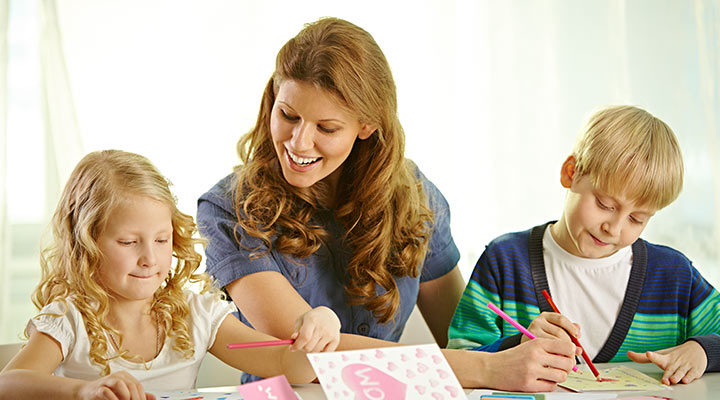There is no doubt that self-esteem and self-acceptance are essential to a person’s happiness. As a mother, I want my children to strive to be the best they can be while also accepting their limitations and feeling good about themselves.
We will all strive for self-acceptance throughout our lives. It is beneficial and keeps us in check, but we must not allow it to go too far and beat us down.
Perfectionism is a two-edged sword. You must be able to strive for excellence while remaining content with yourself even if you fall short of your own high expectations. If you want, you can always try again.
1. Recognize Your Strengths
Children should be exposed to a wide range of new experiences and creative activities in order to discover their own strengths and interests. Encourage their newfound interests. Take advantage of community programmes and events that may expose them to new experiences. Take note of what they like. Take them to the library to learn about their new interests. Help them understand that not everyone has the same strengths, and that this is fine.
2. Accept Differences
Gather all of the children’s stuffed animals and ask them which one is their favourite. Inquire if they want to give away the remaining stuffed animals because they are not the favourite. Obviously not. Each is unique and loved for a different reason. It’s fine and even beneficial that they’re all different. One of the things that keeps things interesting and fun is diversity.
3. Transparent Communication
Take the time to talk with your child about whatever they want to talk about. Even if you have no interest in Pokemon or stamp collecting, keep in mind that if they do, they will want to share it with you. Allowing them to talk and be heard about things that are important to them will help them understand how valuable they are and how much you value them.
4. Think about it
When children like who they are, they can develop self-acceptance and confidence. Every day, ask your student to think about what they like about themselves. It could be something they like about their appearance, personality, intelligence, or even a good deed they did that made them proud of themselves. Begin each day on a positive note by saying, “Tell me five things you like about yourself today.” They’ll discover new things to enjoy every day, increasing their self-esteem. If they prefer writing to speaking, they can use this activity as a gratitude journal.
5. Be Open to Change
It is normal for your child to express negative feelings about themselves. We all have aspects of ourselves that we wish we could change. The important thing is to teach your child that wanting to change is normal and, in many cases, possible. Discuss with your child the aspects of themselves that they dislike, and encourage them to look for ways to change or improve themselves. For example, if they do not believe they are the best player on the soccer team, suggest extra practise time, coaching, or YouTube videos to help them improve. Then encourage and assist them in their efforts. Help them understand that progress requires effort and that we have the option to do so.
6. Create a List
We all have days when we don’t feel particularly good about ourselves. The same is true for your child. Give them a piece of paper and assist them in making a list of all the wonderful aspects of who they are. Allow space on the list for them to add new items as they think of them. Then, post this list somewhere they’ll see it on a daily basis. In their bedroom or bathroom, above their desk, or near the mirror. When they’re having a “I don’t like myself” day, remind them of the list and ask them to read it aloud. Hearing their own voice say nice things about themselves is very powerful. Encourage them to keep adding items to the list on a regular basis.
7. Instill Anti-Perfectionism
Although perfectionism is overrated, children continue to believe that they must be perfect in order to be loved. Talk to your child about your flaws when they are feeling down about themselves and not being as perfect as they believe they should be. Tell them about some of your flaws or how you know you’re not perfect but try your hardest. They will be more willing to accept their less-than-perfect selves if they know they are not alone.
8. Instill Mindfulness
When life gets hectic and we’re rushing from one thing to the next, it’s easy to lose sight of how wonderful we are. Along the way, we lose sight of ourselves. Teach your child to be mindful, in-the-moment, to slow down and appreciate the moments for what they are. For example, when everyone is talking and listening to each other at a family dinner, we forget how imperfect we feel everywhere else and just feel loved and accepted for who we are. Meditation is also beneficial for practising mindfulness and learning to accept oneself. Encourage 5 minutes of family meditation time every morning before starting your day.
9. Stop Making Comparisons
When we compare ourselves to other people, it’s easy to believe that our lives are miserable. But keep in mind that what we know about someone else’s life is only the tip of the iceberg. We have no idea what is going on in their heads or how they feel about themselves. When your child starts comparing themselves to others, remind them that they don’t know everything about that person’s life and that they are wonderful. Comparison is a useless game that serves no purpose.

